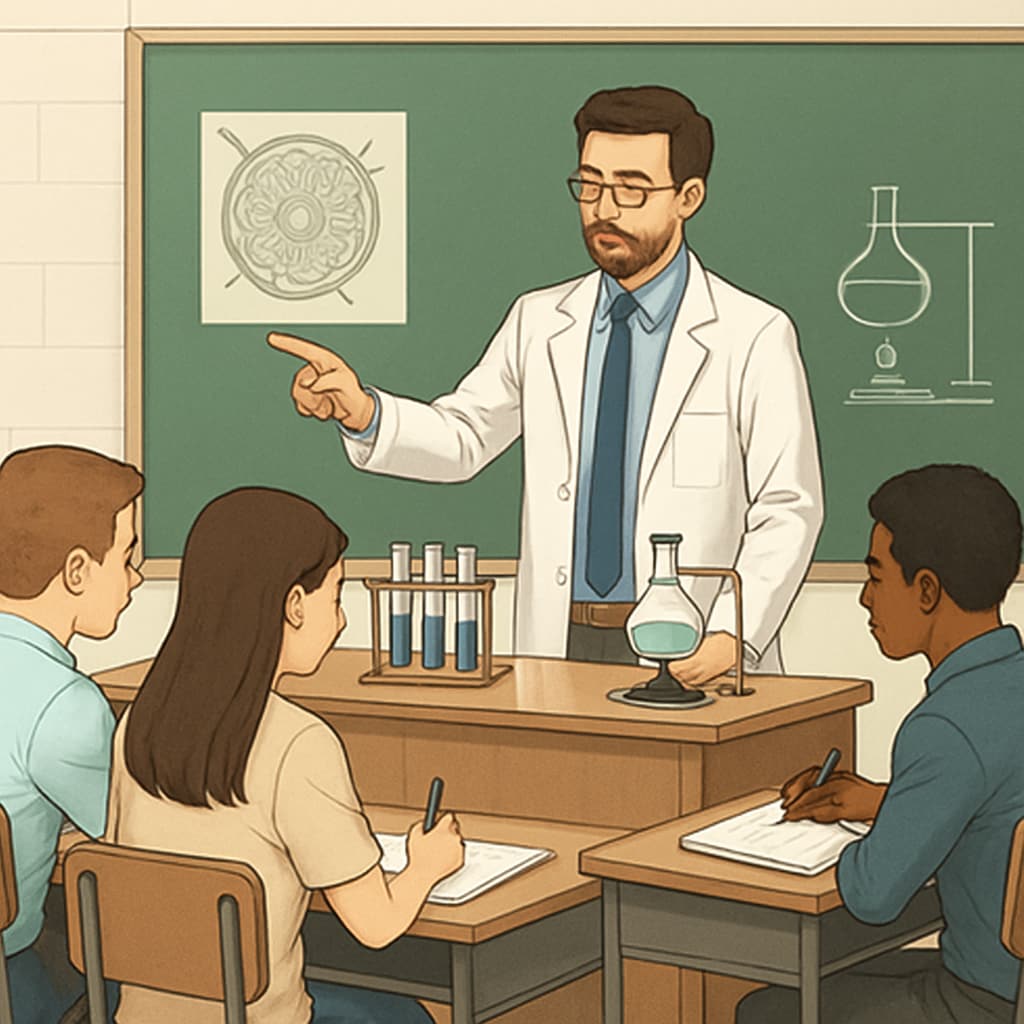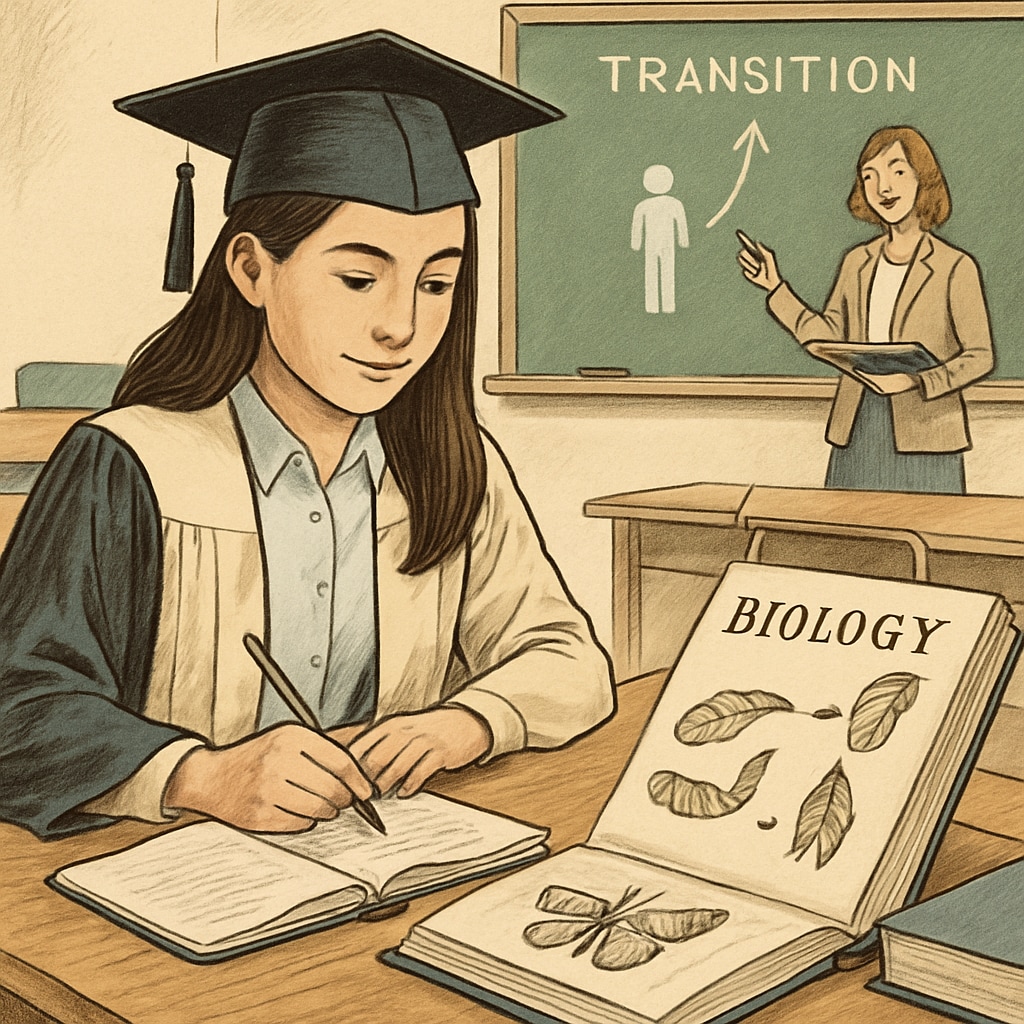For biology students considering a shift in career paths, the idea of transitioning into education may seem both exciting and daunting. This article delves into the possibilities for biology students pursuing an education master’s degree as a pathway to teaching, examining the advantages of such a shift, the challenges, and practical steps for success. By looking at the intersection of science and education, this article aims to inspire and guide those with a passion for both fields.
Why Biology Students Make Great Educators
Biology students possess unique skills that can make them effective educators. Their analytical thinking, ability to interpret complex data, and problem-solving abilities are all critical in the classroom. Additionally, a strong foundation in scientific principles allows them to teach STEM subjects, a field with high demand for qualified educators.
Moreover, biology students often develop skills in communication through lab reports, research presentations, and collaborative projects. These skills are easily transferable to teaching, where clear communication is essential for student engagement and understanding. For example, biology graduates can simplify complex topics like cellular respiration to make them accessible to high school learners.
Finally, pursuing a career in education allows biology students to inspire the next generation of scientists. By sharing their enthusiasm for biology, they can spark curiosity and encourage students to explore STEM fields further.

Challenges of Transitioning from Biology to Education
While the advantages are clear, transitioning from biology to education is not without its challenges. One significant hurdle is the need for additional qualifications. Most teaching positions require a degree in education or a teaching license, which means biology graduates must pursue further studies, such as an education master’s degree.
Another challenge is adjusting to a new professional environment. The shift from laboratory work to classroom teaching demands a different skill set, including classroom management, curriculum planning, and addressing diverse learning needs. These skills can be daunting for those unfamiliar with the educational landscape.
Lastly, transitioning professionals may encounter skepticism from those who question their commitment to teaching. To overcome this, biology graduates must demonstrate their passion for education and their willingness to grow as educators.
Practical Steps for a Successful Transition
For biology students eager to pursue a career in education, here are some actionable steps to ensure a smooth transition:
- Enroll in an Education Master’s Program: Many universities offer master’s programs designed for individuals with non-education undergraduate degrees. These programs provide the necessary credentials and training to teach in schools.
- Gain Classroom Experience: Volunteering, substitute teaching, or tutoring can provide valuable insights into the teaching profession and help build relevant skills.
- Leverage Your STEM Background: Highlight your expertise in biology and its relevance to STEM education. Schools often prioritize candidates who can teach high-demand subjects like science and math.
- Build a Professional Network: Connect with educators, attend teaching seminars, and join education-focused organizations to learn from experienced professionals.
- Develop Soft Skills: Focus on improving communication, adaptability, and empathy, all of which are essential for effective teaching.

The Value of Combining Science and Education
Biology students entering the education field bridge two crucial disciplines: science and teaching. By doing so, they contribute to addressing the global need for skilled STEM educators. According to the Britannica article on STEM education, the demand for qualified STEM teachers continues to rise, making this career path both impactful and sustainable.
In addition, being a teacher offers the opportunity for lifelong learning. Educators constantly refine their knowledge and teaching methods, ensuring they stay updated on scientific advancements. This dynamic environment can be deeply fulfilling for those who thrive on intellectual growth.
For further insights on the value of STEM educators, the STEM fields Wikipedia page provides a broader understanding of the societal impact of science education.
Conclusion: A Journey Worth Taking
Transitioning from biology to education is a challenging yet rewarding journey. With the right mindset, additional qualifications, and a commitment to making a difference, biology students can thrive as educators. By combining their scientific expertise with teaching skills, they have the unique ability to inspire future generations of learners and contribute to the advancement of STEM education worldwide.
For biology students passionate about teaching, the classroom awaits. Take the leap and transform your knowledge of cells into a tool for nurturing young minds in classrooms worldwide.


